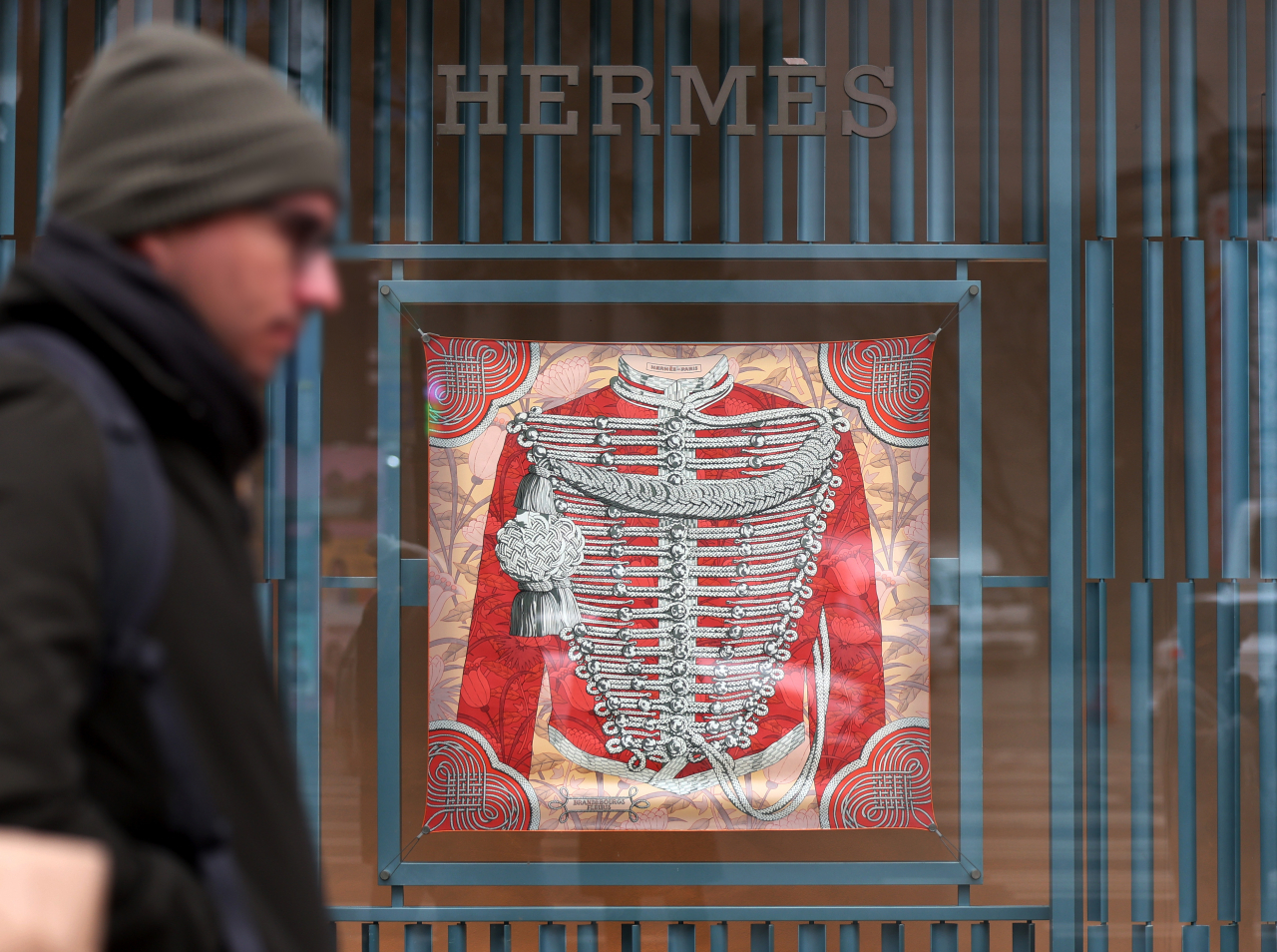 |
A Hermes store in Seoul. The French fashion house is one of the first luxury brands to raise prices this year. (Newsis) |
Another wave of price rises planned by luxury brands in South Korea has stirred up questions about whether their high price tags will indeed see consumers in the world’s biggest luxury goods market continue to open their wallets.
Hermes, one of the highest-priced fashion brands, kicked off the new year by raising its prices, with many other brands expected to follow suit this month.
The French luxury fashion house's Oran sandals now cost 3.52 million won ($2,685), up 44 percent from last year’s 2.45 million won, while its Royal loafers also saw a 14.5 percent price hike from 1.52 million won to 1.74 million won over the past year.
Swiss watchmaker Rolex increased the prices of its popular products by some 8 percent on Jan. 1, and its affiliate, Tudor, also raised prices by around 2 percent on the same day, following its price hikes in January and September last year.
Prada reportedly raised prices last week by 5 to 10 percent, and Chanel is also said to be hiking the prices of its watches and jewelry by 4 to 5 percent starting this week.
“The first time that I came to know Chanel’s classic bag was a decade ago. A mid-sized classic handbag then was priced at around 5 million won, but now it’s over 10 million won, and I am not sure if I want to pay so much,” said a 31-year-old woman surnamed Kim living in Seoul.
The price hikes come as luxury brands are struggling to make up for slowdowns in revenue growth amid a worldwide pullback in spending, especially on luxury goods.
But in Korea, where people's luxury fever shows little sign of abating, the brands have been making frequent price hikes, offsetting some losses in other markets to improve profitability overall.
Korean sales at Louis Vuitton were at 784.6 billion won in 2019 but grew to 1 trillion won in 2020, 1.5 trillion won in 2021 and 1.7 trillion won in 2022.
Chanel also suffered a setback in 2020 with its sales falling below the 1 trillion won mark. But the figures recovered to 1.2 trillion won in 2021 and 1.6 trillion won in 2022.
“Sales of luxury brands in South Korea have increased mainly on loyal customers, who can afford them despite their higher price tags,” said Lee Eun-hee, a professor of consumer science at Inha University.
However, whether their price policies will work in the medium to long term remains uncertain.
"The luxury brands may lose younger customers who are willing to find alternative niche luxury brands that satisfy their craving for luxury goods,” she said.
According to a 2022 report by US investment bank Morgan Stanley, Koreans were the world's biggest spenders on luxury goods. Their luxury spending totaled $16.8 billion, or $325 per capita.




![[Herald Interview] How Gopizza got big in India](http://res.heraldm.com/phpwas/restmb_idxmake.php?idx=644&simg=/content/image/2024/11/20/20241120050057_0.jpg)


![[KH Explains] Dissecting Hyundai Motor's lobbying in US](http://res.heraldm.com/phpwas/restmb_idxmake.php?idx=644&simg=/content/image/2024/11/20/20241120050034_0.jpg)